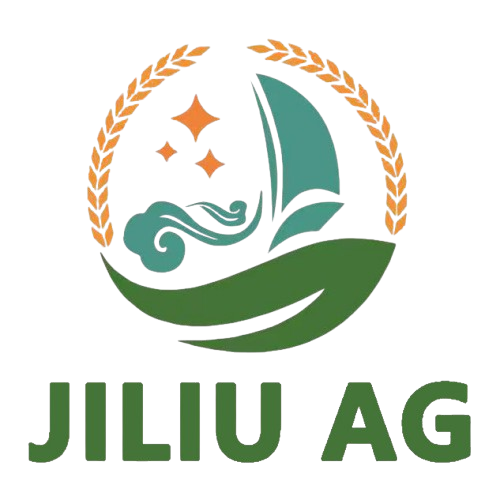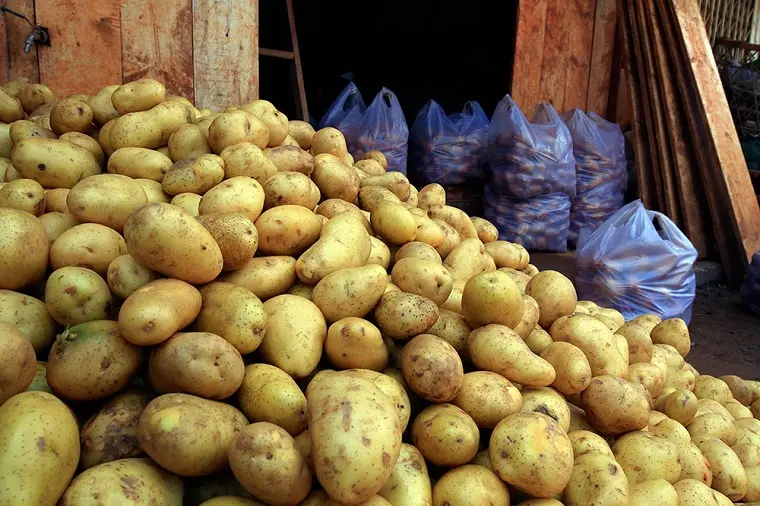Strategies for Sourcing Bulk Potatoes for Global Food Manufacturing
Sourcing bulk potatoes is a critical task for global food manufacturing companies. Potatoes are one of the most widely consumed vegetables in the world, forming the basis of a variety of processed food products. From frozen fries to chips and mashed potatoes, the global food industry relies heavily on a steady supply of high-quality bulk potatoes. However, sourcing these potatoes in large quantities, consistently and sustainably, presents its own set of challenges. This article explores the key strategies and factors that food manufacturers must consider when sourcing bulk potatoes on a global scale.
Importance of Bulk Potato Sourcing for Food Manufacturers
Potatoes are a cornerstone ingredient in the food manufacturing sector. They are used in a variety of products, including snacks, frozen foods, processed meals, and even as ingredients in packaged sauces and soups. With the rise in demand for convenient, ready-to-eat meals and snacks, the food industry’s dependence on bulk potato sourcing has grown significantly.
Global Demand for Bulk Potatoes
The global demand for potatoes has been rising steadily, driven by a growing middle class and changing dietary habits. As populations in emerging markets gain access to processed foods, the need for bulk potatoes has increased. Additionally, established markets such as the United States and Europe continue to demand large volumes of potatoes to meet the needs of fast food chains, snack companies, and large-scale meal production.
Food manufacturers depend on a consistent supply of bulk potatoes to keep production lines running smoothly. Variability in supply can result in production delays, cost fluctuations, and even product shortages, all of which can have negative impacts on profitability and consumer satisfaction. Therefore, having a reliable potato supplier is crucial for ensuring smooth operations in the global food manufacturing sector.
Varieties and Quality of Bulk Potatoes
The quality and variety of bulk potatoes play a crucial role in determining the quality of end products. For example, different potato varieties are best suited for different applications. Russet potatoes, for instance, are commonly used for making French fries due to their high starch content, while red potatoes are favored in mashed potato products because of their waxy texture.
Manufacturers need to choose the right type of potato for their specific product needs, ensuring that the raw material can meet the quality and consistency required in the production process. This is where working with a reliable potato supplier becomes essential. Suppliers must be able to provide detailed information about the varieties of potatoes they offer and ensure that the potatoes meet the specific requirements of food manufacturers.

Key Factors to Consider in Sourcing Bulk Potatoes
Selecting the Right Suppliers
One of the first steps in sourcing bulk potatoes for food manufacturing is identifying trustworthy and reliable suppliers. It is essential to partner with suppliers who can deliver high-quality potatoes consistently and on time. Working with an experienced supplier who understands the demands of the food manufacturing industry can help mitigate risks associated with inconsistent supply, poor quality, and high costs.
Suppliers should have a proven track record of delivering bulk potatoes that meet food safety standards. They should also be able to provide information about their sourcing practices, including how they handle harvesting, storage, and transportation to ensure the potatoes arrive in optimal condition. Transparency in the supply chain is essential for maintaining quality control in food manufacturing.
Geographic Sourcing Locations
The location of the potato supplier plays an important role in the efficiency of the sourcing process. Potatoes are grown in several regions around the world, with major production areas located in countries like China, the United States, India, and Russia. The availability of potatoes in different regions can be influenced by climate, soil quality, and seasonal factors.
Food manufacturing companies must carefully evaluate the geographic location of their suppliers to ensure that the potatoes are grown in optimal conditions and can be delivered efficiently to processing facilities. Sourcing from different regions may also provide flexibility in pricing and supply availability, especially during off-seasons or periods of poor harvests.
Sustainability and Ethical Sourcing
With growing consumer demand for sustainable and ethically sourced products, it’s essential for food manufacturers to prioritize sustainability when sourcing bulk potatoes. This involves ensuring that suppliers engage in environmentally friendly farming practices, such as reducing water usage, minimizing pesticide use, and promoting soil health. Additionally, manufacturers should seek suppliers who treat their workers fairly and comply with labor laws.
Sustainable farming practices not only benefit the environment but can also enhance the brand reputation of food manufacturers. As consumers become more conscious of the environmental impact of their food choices, manufacturers who prioritize sustainability in their sourcing practices may gain a competitive edge in the market.
Logistics and Supply Chain Management
Efficient Potato Transportation
Efficient logistics is crucial in sourcing bulk potatoes for food manufacturing. Potatoes are perishable, and improper storage or transport can lead to spoilage, reducing the quality of the final product. Therefore, food manufacturers need to work with suppliers who have robust logistics systems in place to ensure that potatoes are transported under optimal conditions.
Temperature control is critical for the transportation of bulk potatoes. Depending on the variety, potatoes must be kept at specific temperatures to maintain freshness and prevent sprouting. Additionally, transportation should minimize delays and ensure that potatoes reach manufacturing plants on time to avoid disruptions in production schedules.
Storage and Shelf Life Considerations
In addition to transportation, proper storage is essential for maintaining the quality of bulk potatoes. Potatoes should be stored in cool, dry environments with adequate ventilation to prevent the growth of mold or bacteria. Food manufacturers should work with suppliers who have proper storage facilities or warehouse systems in place to ensure that potatoes remain fresh before they are processed.
Managing the shelf life of bulk potatoes is another critical factor. Potatoes typically have a shelf life of several weeks to months, depending on the variety and storage conditions. Working with a supplier who understands these factors and can provide potatoes with an appropriate shelf life ensures that food manufacturers can meet production demands without compromising product quality.
Cost Considerations and Pricing Strategies
Pricing Trends for Bulk Potatoes
The cost of bulk potatoes can fluctuate depending on various factors such as weather conditions, supply chain disruptions, and global demand. For food manufacturers, it’s important to understand pricing trends and develop strategies to manage costs effectively.
Manufacturers can work with suppliers to establish long-term contracts that help lock in prices and avoid market volatility. By planning ahead and securing a steady supply of potatoes, food companies can better forecast their production costs and avoid unexpected price increases.
Budgeting for Bulk Potato Sourcing
When sourcing bulk potatoes, manufacturers must carefully assess their budget to ensure that they are sourcing at competitive prices without sacrificing quality. It’s essential to strike a balance between cost-effectiveness and quality to maintain profit margins while producing high-quality food products.
Managing Bulk Potato Inventory
Inventory management is key to controlling costs and ensuring that there is no waste in the sourcing process. By maintaining proper inventory levels, manufacturers can avoid both shortages and excess stock, optimizing their potato sourcing strategy. Effective inventory management also helps ensure that potatoes are used before they spoil, reducing overall waste and cost.
FAQ
What are the key factors to consider when sourcing bulk potatoes?
When sourcing bulk potatoes, manufacturers should consider supplier reliability, potato varieties, quality control, sustainability, and the logistics involved in transportation and storage.
How do different potato varieties impact food manufacturing?
Different potato varieties have unique qualities that affect their suitability for specific food products. For example, russet potatoes are ideal for French fries, while waxy varieties are better suited for mashed potatoes and salads.
How can food manufacturers manage fluctuations in bulk potato prices?
Food manufacturers can manage price fluctuations by negotiating long-term contracts with suppliers, establishing fixed pricing, and closely monitoring market trends to anticipate price changes.
What is the importance of sustainability in sourcing bulk potatoes?
Sustainability ensures that potatoes are sourced in an environmentally responsible way, which can appeal to consumers who prioritize eco-friendly and ethically produced products. Sustainable sourcing also helps reduce the environmental impact of food production.

